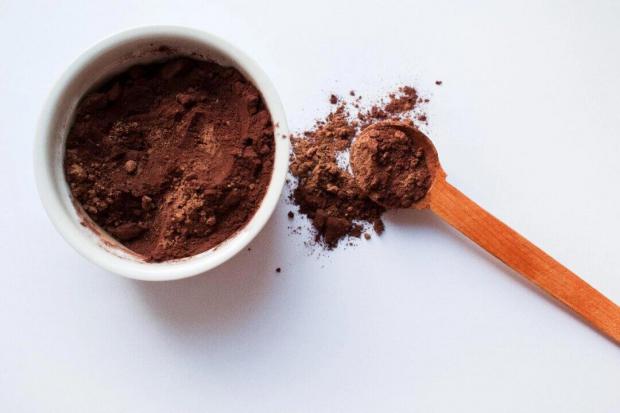
Breaking News
 2008 Crash Prophet Issues URGENT Bubble Warning for 2025 - Maloney
2008 Crash Prophet Issues URGENT Bubble Warning for 2025 - Maloney
 3D Printed Aluminum Alloy Sets Strength Record on Path to Lighter Aircraft Systems
3D Printed Aluminum Alloy Sets Strength Record on Path to Lighter Aircraft Systems
 Bitcoin Surges to $114,777 as Crypto Economy Adds $170 Billion in a Single Day
Bitcoin Surges to $114,777 as Crypto Economy Adds $170 Billion in a Single Day
 'Darker The Better': Daily Cocoa Slows 'Inflammaging' By 70%
'Darker The Better': Daily Cocoa Slows 'Inflammaging' By 70%
Top Tech News
SEMI-NEWS/SEMI-SATIRE: October 12, 2025 Edition
 Stem Cell Breakthrough for People with Parkinson's
Stem Cell Breakthrough for People with Parkinson's
 Linux Will Work For You. Time to Dump Windows 10. And Don't Bother with Windows 11
Linux Will Work For You. Time to Dump Windows 10. And Don't Bother with Windows 11
 XAI Using $18 Billion to Get 300,000 More Nvidia B200 Chips
XAI Using $18 Billion to Get 300,000 More Nvidia B200 Chips
 Immortal Monkeys? Not Quite, But Scientists Just Reversed Aging With 'Super' Stem Cells
Immortal Monkeys? Not Quite, But Scientists Just Reversed Aging With 'Super' Stem Cells
 ICE To Buy Tool That Tracks Locations Of Hundreds Of Millions Of Phones Every Day
ICE To Buy Tool That Tracks Locations Of Hundreds Of Millions Of Phones Every Day
 Yixiang 16kWh Battery For $1,920!? New Design!
Yixiang 16kWh Battery For $1,920!? New Design!
 Find a COMPATIBLE Linux Computer for $200+: Roadmap to Linux. Part 1
Find a COMPATIBLE Linux Computer for $200+: Roadmap to Linux. Part 1
 Bionic hand with NO brain implants?!
Bionic hand with NO brain implants?!
 Nano-cubosome eyedrops target macular degeneration without needles
Nano-cubosome eyedrops target macular degeneration without needles
'Darker The Better': Daily Cocoa Slows 'Inflammaging' By 70%

As we get older, our bodies become more inflamed, increasing our risks of developing chronic disease and dying.
A large-scale study tracked people who took daily cocoa supplements for two years and found that body-wide inflammation stayed steady instead of rising - with the strongest effects in those who had higher inflammation at baseline.
In the COcoa Supplement and Multivitamin Outcomes Study (COSMOS) trial, daily cocoa extract supplements were linked to a 27 percent lower risk of death from cardiovascular disease.
Taking cocoa extract supplementation lowered C-reactive protein, a key marker of body-wide inflammation, by 70 percent after two years.
That drop corresponds to an estimated 7 percent to 23 percent lower risk of cardiovascular events, shifting participants from the "average-risk" range into the low-risk range for heart disease, while the placebo group remained in the average-risk category.
The Inflammation Connection
The study focused on C-reactive protein, or CRP, which typically rises about 5 percent annually with age and is widely used as a marker of body-wide inflammation. This process, dubbed "inflammaging" by researchers, fuels chronic diseases, frailty, disability, and premature death.
While the placebo group's CRP levels rose by about 5 percent per year, the cocoa group's dipped by about 3 percent—a change that wasn't significant on its own. However, when the two groups were compared across two years, cocoa significantly prevented the usual age-related inflammaging, keeping inflammation steady. These results came from a standardized 500-milligram cocoa flavanol supplement (including 80 milligrams epicatechin).
The findings suggest that cocoa may help protect the heart by lowering inflammation, a key driver of cardiovascular disease, Howard Sesso, associate professor of medicine at Brigham and Women's Hospital and lead author of the study, told The Epoch Times.
The cocoa group also showed a small but significant rise in IFN-γ. This messenger has potential antiviral effects, which may indicate protective effects, though its effect on health is still unclear and requires more study.
These results come from the COSMOS-Blood substudy, which followed nearly 600 generally healthy older adults (average age 70) with no history of cardiovascular disease or cancer through repeated blood tests over two years.



